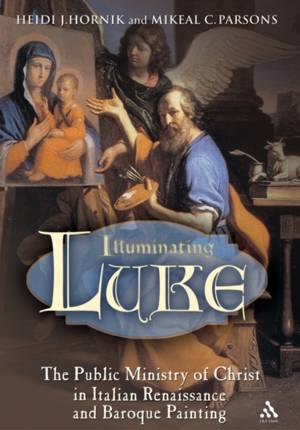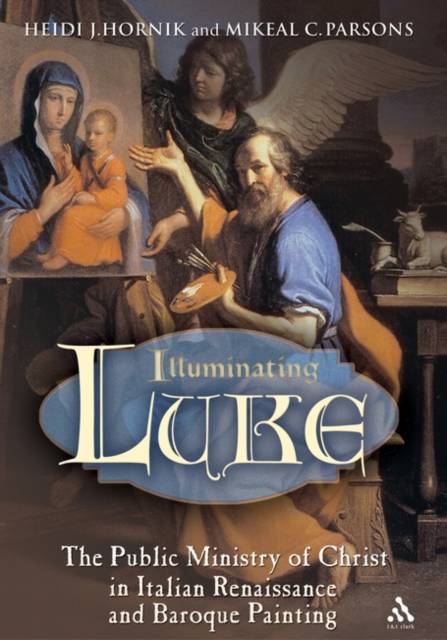
- Retrait gratuit dans votre magasin Club
- 7.000.000 titres dans notre catalogue
- Payer en toute sécurité
- Toujours un magasin près de chez vous
- Retrait gratuit dans votre magasin Club
- 7.000.0000 titres dans notre catalogue
- Payer en toute sécurité
- Toujours un magasin près de chez vous
Illuminating Luke, Volume 2
The Public Ministry of Christ in Italian Renaissance and Baroque Painting
Heidi J Hornik, Mikeal C ParsonsDescription
This book examines visual representations of the public ministry of Christ in scenes unique to the Gospel of Luke. Scenes depicting the birth, suffering, and crucifixion of Christ no doubt dominated the visual repertoire of medieval and renaissance artists. Nonetheless, the miracles and teachings of Jesus also inspired numerous depictions, not only during the period of the earliest Christian art but continuing throughout the Italian Renaissance and Baroque periods. The book demonstrates how this "visual exegesis" might enrich our understanding of Luke's Gospel and at the same time inform the contemporary faith community's interpretation of Scripture. Each of these chapters begins with an overview of the biblical passage and its subsequent interpretation, noting significant rhetorical features and the overarching theological argument of the text, as well as outlining a brief summary of its subsequent interpretation in the ecclesiastical literature. Next, the selected work of art is lent context by giving a brief biography of the artist, placing the work within the artist's own oeuvre, discussing what is known of the patronage of the specific mage, and exploring important social, political and religious factors which may facilitate our understanding of the painting. A stylistic and iconographic analysis is followed by brief hermeneutical reflections about how this visual interpretation might inform the church's reading of Scripture.
Illuminating Luke will appeal broadly to students of the Bible and the history of Christian art. Scholars and students interested in the history of biblical interpretation will benefit from this book. Likewise, educated laypersons and pastors will find in its pages rich resources for theological reflectionSpécifications
Parties prenantes
- Auteur(s) :
- Editeur:
Contenu
- Nombre de pages :
- 192
- Langue:
- Anglais
Caractéristiques
- EAN:
- 9780567028204
- Date de parution :
- 02-09-05
- Format:
- Livre broché
- Format numérique:
- Trade paperback (VS)
- Dimensions :
- 179 mm x 253 mm
- Poids :
- 616 g

Les avis
Nous publions uniquement les avis qui respectent les conditions requises. Consultez nos conditions pour les avis.






